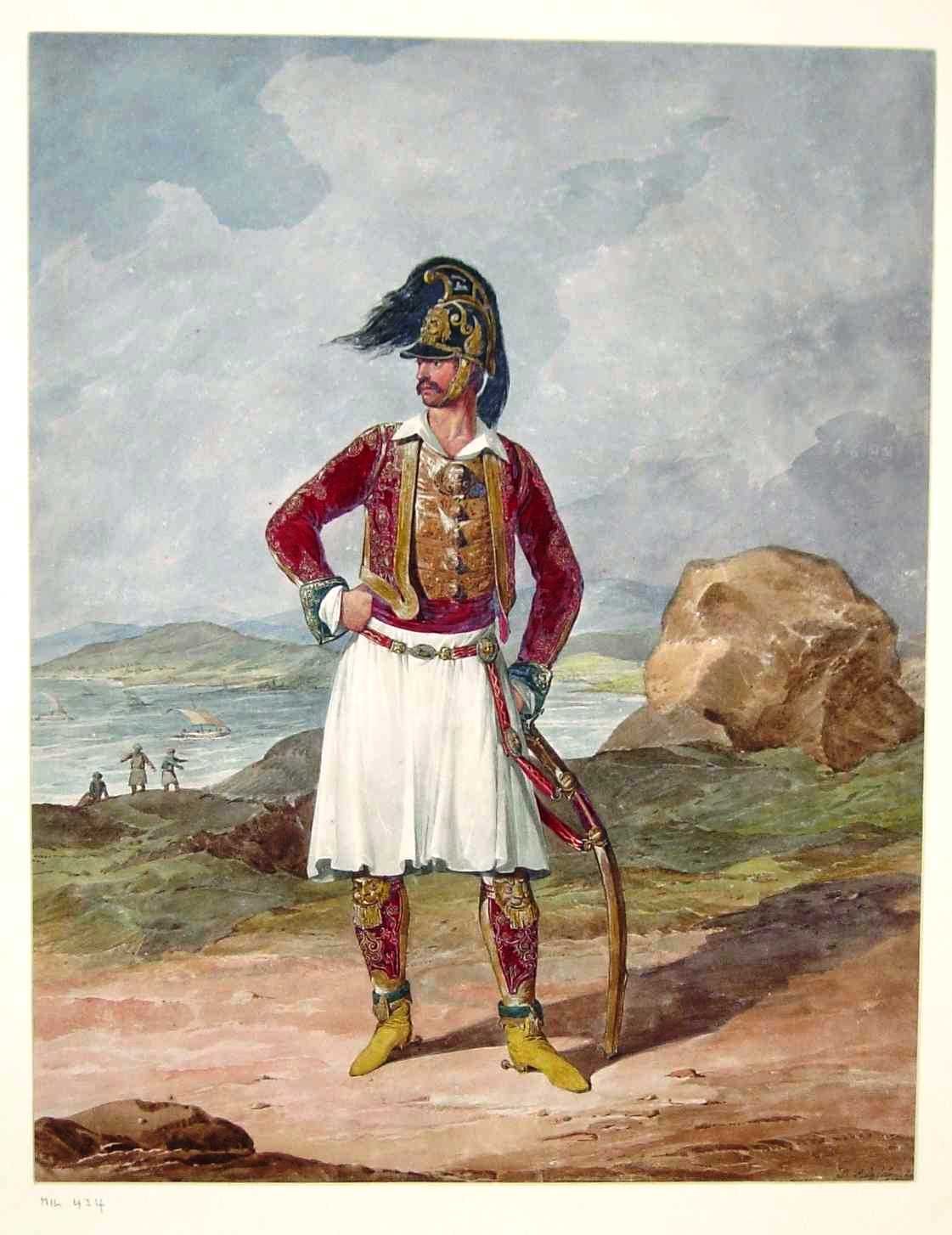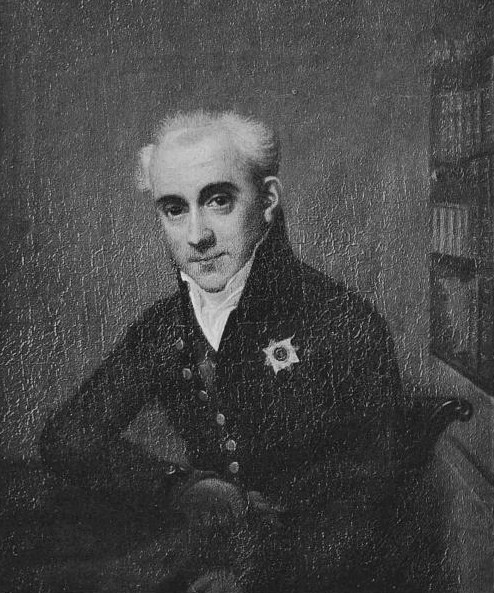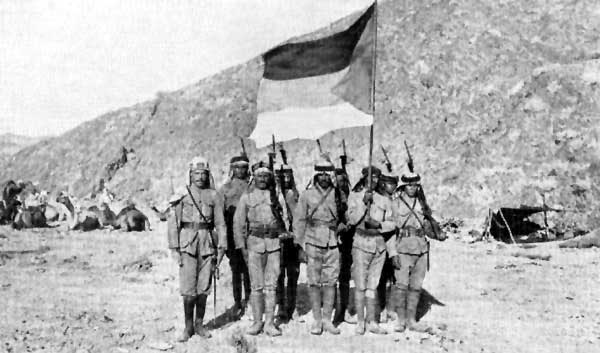|
1st Regiment Greek Light Infantry
The 1st Regiment Greek Light Infantry (1810–12) was a light infantry regiment, founded as a ''local establishment'' in United Kingdom of Great Britain and Ireland, British service consisting mostly of Greek and Albanian enlisted men and Greek and British officers that served during the Napoleonic Wars. Later it became a regular British Army regiment as the 1st Greek Light Infantry ("The Duke of York's") (1812–16). It had no official association with the modern state of Greece or the Filiki Eteria or any Greek War of Independence groups; however, several future leaders of the War of Independence fought in its ranks, as did a number of rank-and-file klephts and armatolos, armatoloi. Background The British Army during the Napoleonic Wars was small (~40,000 troops) at the outset compared to those of other European countries like France and Prussia. The British Army used foreign volunteers, such as Legitimists, French Royalists, German People, Germans, Greeks and Corsicans to supple ... [...More Info...] [...Related Items...] OR: [Wikipedia] [Google] [Baidu] |
Septinsular Republic
The Septinsular Republic ( el, Ἑπτάνησος Πολιτεία, Heptanēsos Politeia; it, Repubblica Settinsulare) was an oligarchic republic that existed from 1800 to 1807 under nominal Russian and Ottoman sovereignty in the Ionian Islands (Corfu, Paxoi, Lefkada, Cephalonia, Ithaca, Zakynthos (Zante in English), and Kythira). The Republic was established after a joint Russo-Ottoman fleet captured the islands and ended a two-year rule by the French Republic. Although the islanders had hoped for complete independence, the new state was granted only autonomy, becoming tributary to the Ottoman Porte. Nevertheless, it was the first time Greeks had been granted self-government since the fall of the last remnants of the Byzantine Empire to the Ottomans in the mid-15th century. In 1807, the republic was ceded to Napoleon's French Empire, but the islands kept their institutions of government. The British gradually took control of the islands from 1809 on, and following the Treat ... [...More Info...] [...Related Items...] OR: [Wikipedia] [Google] [Baidu] |
Armatolos
The armatoles ( el, αρματολοί, armatoloi; sq, armatolë; rup, armatoli; bs, armatoli), or armatole in singular ( el, αρματολός, armatolos; sq, armatol; rup, armatol; bs, armatola), were Christian irregular soldiers, or militia, commissioned by the Ottomans to enforce the Sultan's authority within an administrative district called an Armatoliki ( in singular, , in plural). In Greek regions of the Ottoman Empire, they were composed of Greeks who were either former klephts or village stalwarts who had taken up arms against the klephts in the defense of their district. The Greek armatoles had a semi-independent status all over the Greek peninsula, and armatolikia were created in areas that had high levels of brigandage (i.e. klephts), or in regions that were difficult for Ottoman authorities to govern due to the inaccessible terrain, such as the Agrafa mountains of Thessaly, where the first armatoliki was established in the 15th century. Over time, the roles ... [...More Info...] [...Related Items...] OR: [Wikipedia] [Google] [Baidu] |
Richard Church (general)
Sir Richard Church (; 23 February 1784 – 20 March 1873)For the date of death see relevant Section of the article explaining the discrepancy of sources was a military officer in the British Army and commander of the Greek forces during the last stages of the Greek War of Independence after 1827. After Greek independence, he became a general in the Hellenic Army and a member of the Greek Senate. Early life and career He was the second son of Matthew Church, a Quaker merchant in the North Mall area of Cork (city), Cork, Ireland, and Anne Dearman, originally from Braithwaith, Yorkshire, England. At the age of 16, he ran away from home and enlisted in the British Army. For this violation of its principles he was disowned by the Society of Friends, but his father bought him a commission, dated 3 July 1800, in the The Somerset Light Infantry (Prince Albert's), 13th (Somersetshire) Light Infantry. He served in the demonstration against Ferrol, Spain, Ferrol, and in the expediti ... [...More Info...] [...Related Items...] OR: [Wikipedia] [Google] [Baidu] |
Richard Church Greek Light Infantry Of The Duke Of York 1813 By Denis Dighton
Richard is a male given name. It originates, via Old French, from Old Frankish and is a compound of the words descending from Proto-Germanic ''*rīk-'' 'ruler, leader, king' and ''*hardu-'' 'strong, brave, hardy', and it therefore means 'strong in rule'. Nicknames include "Richie", "Dick", "Dickon", " Dickie", "Rich", "Rick", "Rico", "Ricky", and more. Richard is a common English, German and French male name. It's also used in many more languages, particularly Germanic, such as Norwegian, Danish, Swedish, Icelandic, and Dutch, as well as other languages including Irish, Scottish, Welsh and Finnish. Richard is cognate with variants of the name in other European languages, such as the Swedish "Rickard", the Catalan "Ricard" and the Italian "Riccardo", among others (see comprehensive variant list below). People named Richard Multiple people with the same name * Richard Andersen (other) * Richard Anderson (other) * Richard Cartwright (other) * Ric ... [...More Info...] [...Related Items...] OR: [Wikipedia] [Google] [Baidu] |
Rise Of Nationalism In The Ottoman Empire
The rise of the Western notion of nationalism in the Ottoman Empire eventually caused the breakdown of the Ottoman ''millet'' concept. An understanding of the concept of nationhood prevalent in the Ottoman Empire, which was different from the current concept of nationhood as it was centered on religion, was a key factor in the decline of the Ottoman Empire. Background In the Ottoman Empire, the Islamic faith was the official religion, with members holding all rights, as opposed to Non-Muslims, who were restricted. Non-Muslim (''dhimmi'') ethno-religious legal groups were identified as different '' millets'', meaning "nations". Ideas of nationalism emerged in Europe in the 19th century at a time when most of the Balkans were still under Ottoman rule. The Christian peoples of the Ottoman Empire, starting with Serbs and Greeks, but later spreading to Montenegrins and Bulgarians, began to demand autonomy in a series of armed revolts beginning with the Serbian Revolution (180 ... [...More Info...] [...Related Items...] OR: [Wikipedia] [Google] [Baidu] |
Modern Greek Enlightenment
The Modern Greek Enlightenment ( el, Διαφωτισμός, ''Diafotismos'', "enlightenment," "illumination"; also known as the Neo-Hellenic Enlightenment) was the Greek expression of the Age of Enlightenment. Origins The Greek Enlightenment was given impetus by the Greek predominance in trade and education in the Ottoman Empire. This allowed Greek merchants to finance a large number of young Greeks to study in universities in Italy and the German states. There, they were introduced to the ideas of the Enlightenment and the French Revolution.Encyclopædia Britannica, ''Greek history, Intellectual Revival'', 2008 ed. It was the wealth of the extensive Greek merchant class that provided the material basis for the intellectual revival that was the prominent feature of Greek life in the half century and more leading to 1821. It was not by chance that on the eve of the Greek War of Independence the epicenters of Greek learning, i.e. schools-cum-universities, were situated in Ioanni ... [...More Info...] [...Related Items...] OR: [Wikipedia] [Google] [Baidu] |
Wars Of National Liberation
Wars of national liberation or national liberation revolutions are conflicts fought by nations to gain independence. The term is used in conjunction with wars against foreign powers (or at least those perceived as foreign) to establish separate sovereign states for the rebelling nationality. From a different point of view, such wars are called insurgencies, rebellions, or wars of independence. Guerrilla warfare or asymmetric warfare is often utilized by groups labeled as national liberation movements, often with support from other states. The term "wars of national liberation" is most commonly used for those fought during the decolonization movement. Since these were primarily in the third world against Western powers and their economic influence and a major aspect of the Cold War, the phrase itself has often been viewed as biased or pejorative. Some of these wars were either vocally or materially supported by the Soviet Union, which stated itself to be an anti-imperialist powe ... [...More Info...] [...Related Items...] OR: [Wikipedia] [Google] [Baidu] |
Ottoman Empire
The Ottoman Empire, * ; is an archaic version. The definite article forms and were synonymous * and el, Оθωμανική Αυτοκρατορία, Othōmanikē Avtokratoria, label=none * info page on book at Martin Luther University) // CITED: p. 36 (PDF p. 38/338) also known as the Turkish Empire, was an empire that controlled much of Southeast Europe, Western Asia, and Northern Africa between the 14th and early 20th centuries. It was founded at the end of the 13th century in northwestern Anatolia in the town of Söğüt (modern-day Bilecik Province) by the Turkoman tribal leader Osman I. After 1354, the Ottomans crossed into Europe and, with the conquest of the Balkans, the Ottoman beylik was transformed into a transcontinental empire. The Ottomans ended the Byzantine Empire with the conquest of Constantinople in 1453 by Mehmed the Conqueror. Under the reign of Suleiman the Magnificent, the Ottoman Empire marked the peak of its power and prosperity, as well a ... [...More Info...] [...Related Items...] OR: [Wikipedia] [Google] [Baidu] |
Oxford University Press
Oxford University Press (OUP) is the university press of the University of Oxford. It is the largest university press in the world, and its printing history dates back to the 1480s. Having been officially granted the legal right to print books by decree in 1586, it is the second oldest university press after Cambridge University Press. It is a department of the University of Oxford and is governed by a group of 15 academics known as the Delegates of the Press, who are appointed by the vice-chancellor of the University of Oxford. The Delegates of the Press are led by the Secretary to the Delegates, who serves as OUP's chief executive and as its major representative on other university bodies. Oxford University Press has had a similar governance structure since the 17th century. The press is located on Walton Street, Oxford, opposite Somerville College, in the inner suburb of Jericho. For the last 500 years, OUP has primarily focused on the publication of pedagogical texts and ... [...More Info...] [...Related Items...] OR: [Wikipedia] [Google] [Baidu] |
Corsica
Corsica ( , Upper , Southern ; it, Corsica; ; french: Corse ; lij, Còrsega; sc, Còssiga) is an island in the Mediterranean Sea and one of the 18 regions of France. It is the fourth-largest island in the Mediterranean and lies southeast of the French mainland, west of the Italian Peninsula and immediately north of the Italian island of Sardinia, which is the land mass nearest to it. A single chain of mountains makes up two-thirds of the island. , it had a population of 349,465. The island is a territorial collectivity of France. The regional capital is Ajaccio. Although the region is divided into two administrative departments, Haute-Corse and Corse-du-Sud, their respective regional and departmental territorial collectivities were merged on 1 January 2018 to form the single territorial collectivity of Corsica. As such, Corsica enjoys a greater degree of autonomy than other French regional collectivities; for example, the Corsican Assembly is permitted to exercise limit ... [...More Info...] [...Related Items...] OR: [Wikipedia] [Google] [Baidu] |
Greeks
The Greeks or Hellenes (; el, Έλληνες, ''Éllines'' ) are an ethnic group and nation indigenous to the Eastern Mediterranean and the Black Sea regions, namely Greece, Cyprus, Albania, Italy, Turkey, Egypt, and, to a lesser extent, other countries surrounding the Mediterranean Sea. They also form a significant diaspora (), with Greek communities established around the world.. Greek colonies and communities have been historically established on the shores of the Mediterranean Sea and Black Sea, but the Greek people themselves have always been centered on the Aegean and Ionian seas, where the Greek language has been spoken since the Bronze Age.. Until the early 20th century, Greeks were distributed between the Greek peninsula, the western coast of Asia Minor, the Black Sea coast, Cappadocia in central Anatolia, Egypt, the Balkans, Cyprus, and Constantinople. Many of these regions coincided to a large extent with the borders of the Byzantine Empire of the late 11th cent ... [...More Info...] [...Related Items...] OR: [Wikipedia] [Google] [Baidu] |







.jpg)
